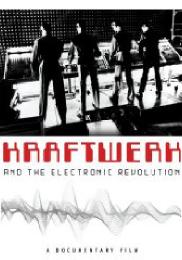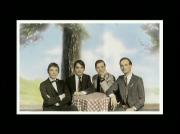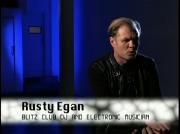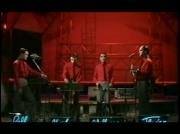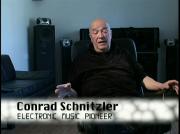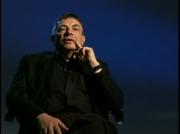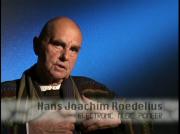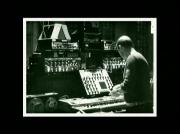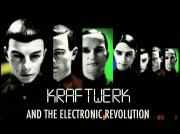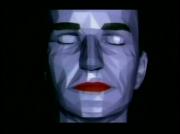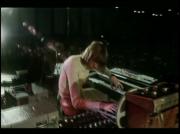Changes made to Kraftwerk and the Electronic Revolution - simply stunning documentary...
Revision 13
Created on Sunday, 31st August 2008, 23:47
Change Submitted by Si Wooldridge
List of Changes:
-
Change #1 - usic fan
s. Recomm
Revision 12
Created on Sunday, 31st August 2008, 23:11
Change Submitted by Si Wooldridge
List of Changes:
- Change #1 - uenced two distin
Revision 11
Created on Sunday, 31st August 2008, 23:10
Change Submitted by Si Wooldridge
List of Changes:
-
Change #1 - ing]
<newline>
<newline>
<newline> <newline>Wow. I’d -
Change #2 - ngs.
<newline>
<newline>
<newline> <newline>Whilst t - Change #3 - music. <newline> <newline> [imgmc=0000204141.jpg|0000107270] <newline> <newline>I got in
-
Change #4 - m).
<newline>
<newline>
<newline> <newline>I have t -
Change #5 - rds.
<newline>
<newline>
<newline> <newline>The only -
Change #6 - lms.
<newline>
<newline>
<newline> <newline>Kraftwer - Change #7 - itation. <newline> <newline> [imgmc=0000204148.jpg|0000107277]
Revision 10
Created on Sunday, 31st August 2008, 23:09
Change Submitted by Si Wooldridge
List of Changes:
-
Change #1 - ing]
<newline>
<newline>
<newline> <newline>Well edi -
Change #2 - footage.
<newline>
<newline>
<newline> <newline>[heading]Aud -
Change #3 - ing]
<newline>
<newline>
<newline> <newline>2.0 Ster - Change #4 - aftwerk. <newline> <newline> [imgmc=0000204147.jpg|0000107276] <newline> <newline>[heading
-
Change #5 - heading]
<newline>
<newline>
<newline> <newline>The Krautroc -
Change #6 - tes)
<newline>
<newline>
<newline> <newline>Karl Bar -
Change #7 - ely.
<newline>
<newline>
<newline> <newline>Contribu - Change #8 - he film. <newline> <newline> [imgmc=0000204150.jpg|0000107279] <newline> <newline>[heading
Revision 9
Created on Sunday, 31st August 2008, 23:07
Change Submitted by Si Wooldridge
List of Changes:
-
Change #1 - e floor.
<newline>
<newline>
<newline> <newline>Contribution - Change #2 - by it. <newline> <newline> [imgmc=0000204146.jpg|0000107275] <newline> <newline>[heading
Revision 8
Created on Sunday, 31st August 2008, 23:07
Change Submitted by Si Wooldridge
List of Changes:
-
Change #1 - ew).
<newline>
<newline>
<newline> <newline>This fil - Change #2 - Florian. <newline> <newline> [imgmc=0000204143.jpg|0000107272] <newline> <newline>By the m
Revision 7
Created on Sunday, 31st August 2008, 23:06
Change Submitted by Si Wooldridge
List of Changes:
-
Change #1 - heading]
[heading]Introduc -
Change #2 - ing]
<newline>
<newline>
<newline> <newline>It is ar -
Change #3 - hn.
<newline>
<newline>
<newline> <newline>Of cours - Change #4 - hausen. <newline> <newline> [imgmc=0000204145.jpg|0000107274] <newline> <newline>This in
Revision 6
Created on Sunday, 31st August 2008, 23:05
Change Submitted by Si Wooldridge
List of Changes:
-
Change #1 - ng][
b] [imgmc=0000204147.jpg|0000107276]heading]Introduction [/heading] <newline> <newline> <newline> <newline>It is argued by some that The Beatles were on of the most important bands in music. I wouldn’t argue with that but I’d place Düsseldorf quartet Kraftwerk on at least equal footing and possibly on a bigger pedestal. The Liverpudlian band revolutionised pop music and song-writing, and possibly invented the heavy metal genre with Helter Skelter from The White Album. Kraftwerk and their synthesised melodies coupled with machine-like rhythms changed the face of pop music more. They influenced the like of David Bowie, who in turn influenced the emerging New Romantic scene of the early 80’s, and rather bizarrely seemed to be the single most influential factor in the creation of the hip hop genre. Kraftwerk were innovators and brought their Teutonic influences to a series of ground-breaking albums starting with 1975’s Autobahn. <newline> <newline> <newline> <newline>Of course, Kraftwerk were in turn influenced by those pioneers who came before them and weren’t always totally electronic. This film traces the two scenes of the influential Krautrock genre and the origins of German electronic music. Music was never meant to be electronic, and never totally electronic, it just wasn’t done. Two pioneers led the way and turned expectations on their head; France’s Pierre Schaeffer and Germany’s Karlheinz Stockhausen. <newline> <newline> <newline> <newline> - Change #2 - f crew). <newline> <newline> <newline> <newline>This film in
-
Change #3 -
<newline>
<newline>
[imgmc=0000204143.jpg|0000107272]<newline> <newline> - Change #4 - e floor. <newline> <newline> <newline> <newline>Contribution
-
Change #5 - it.
[b] <newline> <newline> [imgmc=0000204146.jpg|0000107275]<newline> <newline> <newline> <newline> -
Change #6 - g]Visual
[/b][/headi - Change #7 - ing] <newline> <newline> <newline> <newline>Well edi
- Change #8 - footage. <newline> <newline> <newline> <newline>[heading][b]
-
Change #9 - ing]
[b]Audio[/b][/h - Change #10 - ing] <newline> <newline> <newline> <newline>2.0 Ster
-
Change #11 -
<newline>
<newline>
[imgmc=0000204145.jpg|0000107274]<newline> <newline> -
Change #12 - ing]
[b]Extras[/b][/h -
Change #13 - ing]
[b]Overall[/b][/h
Revision 5
Created on Sunday, 31st August 2008, 23:04
Change Submitted by Si Wooldridge
List of Changes:
-
Change #1 - ][b]
Introduction[/b] [/heading] <newline> <newline>It is argued by some that The Beatles were on of the most important bands in music. I wouldn’t argue with that but I’d place Düsseldorf quartet Kraftwerk on at least equal footing and possibly on a bigger pedestal. The Liverpudlian band revolutionised pop music and song-writing, and possibly invented the heavy metal genre with Helter Skelter from The White Album. Kraftwerk and their synthesised melodies coupled with machine-like rhythms changed the face of pop music more. They influenced the like of David Bowie, who in turn influenced the emerging New Romantic scene of the early 80’s, and rather bizarrely seemed to be the single most influential factor in the creation of the hip hop genre. Kraftwerk were innovators and brought their Teutonic influences to a series of ground-breaking albums starting with 1975’s Autobahn. <newline> <newline>Of course, Kraftwerk were in turn influenced by those pioneers who came before them and weren’t always totally electronic. This film traces the two scenes of the influential Krautrock genre and the origins of German electronic music. Music was never meant to be electronic, and never totally electronic, it just wasn’t done. Two pioneers led the way and turned expectations on their head; France’s Pierre Schaeffer and Germany’s Karlheinz Stockhausen. <newline> <newline>[im -
Change #2 - ing]
<newline>
<newline>
<newline> <newline>2.0 Ster - Change #3 - aftwerk. <newline> <newline> [imgmc=0000204145.jpg|0000107274] <newline> <newline>[heading
Revision 4
Created on Sunday, 31st August 2008, 23:03
Change Submitted by Si Wooldridge
List of Changes:
-
Change #1 - ing]
<newline>
<newline>
<newline> <newline>It is ar -
Change #2 - hn.
<newline>
<newline>
<newline> <newline>Of cours - Change #3 - hausen. <newline> <newline> [imgmc=0000204147.jpg|0000107276] <newline> <newline>This in
-
Change #4 - ew).
<newline>
<newline>
<newline> <newline>This fil - Change #5 - Florian. <newline> <newline> [imgmc=0000204143.jpg|0000107272] <newline> <newline>By the m
-
Change #6 - e floor.
<newline>
<newline>
<newline> <newline>Contribution -
Change #7 - it.
[/b] <newline> <newline><newline> <newline> [imgmc=0000204146.jpg|0000107275] <newline> <newline> -
Change #8 - heading]
[b]Visual[/ -
Change #9 - ing]
<newline>
<newline>
<newline> <newline>Well edi -
Change #10 - footage.
<newline>
<newline>
<newline> <newline>[heading][b]
Revision 3
Created on Sunday, 31st August 2008, 23:01
Change Submitted by Si Wooldridge
List of Changes:
-
Change #1 - ][b]
[imgmc=0000204150.jpg|0000107279]Introduction[/b] [/heading] <newline> <newline> <newline> <newline>It is argued by some that The Beatles were on of the most important bands in music. I wouldn’t argue with that but I’d place Düsseldorf quartet Kraftwerk on at least equal footing and possibly on a bigger pedestal. The Liverpudlian band revolutionised pop music and song-writing, and possibly invented the heavy metal genre with Helter Skelter from The White Album. Kraftwerk and their synthesised melodies coupled with machine-like rhythms changed the face of pop music more. They influenced the like of David Bowie, who in turn influenced the emerging New Romantic scene of the early 80’s, and rather bizarrely seemed to be the single most influential factor in the creation of the hip hop genre. Kraftwerk were innovators and brought their Teutonic influences to a series of ground-breaking albums starting with 1975’s Autobahn. <newline> <newline> <newline> <newline>Of - Change #2 - en. <newline> <newline> <newline> <newline>This in
-
Change #3 -
<newline>
<newline>
[imgmc=0000204146.jpg|0000107275]<newline> <newline>Th - Change #4 - ian. <newline> <newline> <newline> <newline>By the m
- Change #5 - e floor. <newline> <newline> <newline> <newline>Contribution
-
Change #6 - it. [b]
<newline> <newline> [imgmc=0000204143.jpg|0000107272][/b] <newline> <newline> <newline> <newline> - Change #7 - heading][b]Visual[/
- Change #8 - sual[/b] [/headin
- Change #9 - ing] <newline> <newline> <newline> <newline>Well edi
- Change #10 - footage. <newline> <newline> <newline> <newline>[heading][b]
- Change #11 - ing] <newline> <newline> <newline> <newline>2.0 Ster
-
Change #12 -
<newline>
<newline>
[imgmc=0000204145.jpg|0000107274]<newline> <newline> - Change #13 - heading] <newline> <newline> <newline> <newline>The Krautroc
- Change #14 - tes) <newline> <newline> <newline> <newline>Karl Bar
- Change #15 - ctively. <newline> <newline> <newline> <newline>Contributor
- Change #16 - he film. <newline> <newline> <newline> <newline>[heading][b]
- Change #17 - ing] <newline> <newline> <newline> <newline>Wow. I’d
- Change #18 - ngs. <newline> <newline> <newline> <newline>Whilst t
-
Change #19 -
<newline>
<newline>
[imgmc=0000204141.jpg|0000107270]<newline> <newline> -
Change #20 - a lot of th
eis early music -
Change #21 - eatured
hereis more -
Change #22 - noise.
- Change #23 - m). <newline> <newline> <newline> <newline>I have t
- Change #24 - Awards. <newline> <newline> <newline> <newline>The only thi
- Change #25 - lms. <newline> <newline> <newline> <newline>Kraftwer
-
Change #26 - ion.
<newline> <newline> [imgmc=0000204148.jpg|0000107277]
Revision 2
Created on Sunday, 31st August 2008, 22:59
Change Submitted by Si Wooldridge
List of Changes:
-
Change #1 - ][b]
Introduction[/b] [/heading] <newline> <newline> <newline> <newline> It is argued by some that The Beatles were on of the most important bands in music. I wouldn’t argue with that but I’d place Düsseldorf quartet Kraftwerk on at least equal footing and possibly on a bigger pedestal. The Liverpudlian band revolutionised pop music and song-writing, and possibly invented the heavy metal genre with Helter Skelter from The White Album. Kraftwerk and their synthesised melodies coupled with machine-like rhythms changed the face of pop music more. They influenced the like of David Bowie, who in turn influenced the emerging New Romantic scene of the early 80’s, and rather bizarrely seemed to be the single most influential factor in the creation of the hip hop genre. Kraftwerk were innovators and brought their Teutonic influences to a series of ground-breaking albums starting with 1975’s Autobahn. <newline> <newline> <newline> <newline> Of course, Kraftwerk were in turn influenced by those pioneers who came before them and weren’t always totally electronic. This film traces the two scenes of the influential Krautrock genre and the origins of German electronic music. Music was never meant to be electronic, and never totally electronic, it just wasn’t done. Two pioneers led the way and turned expectations on their head; France’s Pierre Schaeffer and Germany’s Karlheinz Stockhausen. <newline> <newline> <newline> <newline> This in turn influenced to distinct scenes in Germany; one in Berlin centred around the Zodiac Club and the other in Düsseldorf. Whilst both were highly influential in terms of creating an electronic underground scene in Germany, the Berlin scene tended to be much more serious about their art than those in Düsseldorf who appeared almost campy (according to contributor Ingeborg Schober, this was mainly due to the fact that most advertising agencies were centred around this area and thus the importance of image and presentation influenced the Düsseldorf crew). <newline> <newline> <newline> <newline> This film initially centres itself around both scenes, exploring the musical heritage of both cities and giving a very detailed history of the bands and musicians that made up both musical scenes. Bands such as Can, Neu!, Tangerine Dream, Kluster and Amon Düül share the stage with Kraftwerk and musical precursors Organisation and Rolf and Florian. <newline> <newline> <newline> <newline> By the mid-70’s, however, the focus of the film shifts and from the point of the release of Autobahn onwards, is interested purely in Kraftwerk and their output. The majority of the story of Kraftwerk is centred around the definitive lineup of Ralf Hütter, Florian Schneider, Karl Bartos and Wolfgang Flür. We see how Kraftwerk were also influenced by someone they themselves had influenced; the Giorgio Moroder produced single I Feel Love for Donna Summer saw the group exploring rhythms suited for the dance floor. <newline> <newline> <newline> <newline> Contributions come from a variety of figures that were either within the scenes, peripheral to it all via the media or influenced by it. [b][/b] <newline> <newline> <newline> <newline> [heading][b]Visual[/b] [/heading] <newline> <newline> <newline> <newline> Well edited documentary that mixes contemporary talking head interviews with older photographic image and film footage. <newline> <newline> <newline> <newline> [heading][b]Audio[/b] [/heading] <newline> <newline> <newline> <newline> 2.0 Stereo English with narration handled by Thomas Arnold. No subtitles bar interpretation from German to English, but these are captions rather than subtitles. The soundtrack is stunning, providing the viewer with an aural history of electronic music from Stockhausen and Pierre Schaeffer through Tangerine Dream, Neu! and Kluster to Human League, Gary Numan, Afrika Bambaataa and, of course, lots of Kraftwerk. <newline> <newline> <newline> <newline> [heading][b]Extras[/b] [/heading] <newline> <newline> <newline> <newline> The Krautrock Divide: The Düsseldorf Scene vs the Berlin Scene – examines the differences between the two Krautrock scenes (5 minutes) <newline> <newline> <newline> <newline> Karl Bartos: I Was A Robot – extended interview with the ex-percussionist, who provides an interesting take on how the 80’s passed the group by and how their perfectionism delayed the releases of Electric Café and The Mix by 3 and 6 years respectively. <newline> <newline> <newline> <newline> Contributor biographies – text based biographies of all the main contributors, some of which is covered already in the documentary but there’s little repetition – it’s also up to date to 2007, providing information outside of the context of the film. <newline> <newline> <newline> <newline> [heading][b]Overall[/b] [/heading] <newline> <newline> <newline> <newline> Wow. I’d use more enthusiastic superlatives but that wouldn’t be in keeping with the Kraftwerk style. Kraftwerk are one of those groups of which much is known but so much else isn’t, they are the Howard Hughes of the musical world, an air of secrecy surrounding both their personal and musical lives – although the book I Was A Robot by ex-member Wolfgang Flür was a little too near the knuckle for founder members Ralf Hütter and Florian Schneider. As expected, there aren’t any contributions from either Hütter or Schneider (or Flür) and whilst Karl Bartos is possibly the most important contributor here, his contribution is based solely on the music side of things. <newline> <newline> <newline> <newline> Whilst this film doesn’t really divulge any secrets about the band, what you get is a very detailed documentary that shows where one of the most influential bands ever came from and puts their output into perspective with what was happening in Germany at the time. The documentary lasts for three hours, so you can’t really complain about lack of detail or skirting around major milestones in the history of the Krautrock scene and the origins of German electronic music. <newline> <newline> <newline> <newline> I got into Kraftwerk late, I missed their early work and came across them after being heavily influenced by the New Romantic synthpop genre of the early 80’s after hitting my early teens. The synthesiser is the core of my musical tastes, but it must be said only in certain contexts. I’ve never really been into experimental or ambient synth music, I like a bit of rhythm and plenty of melody. As a teenager I can remember borrowing a vinyl edition of Autobahn from the school library after a recommendation from a friend (I’d not long received a copy of number one single The Model for my birthday – yes, I know that it was really Computer Love but it was the 1978 track that got all the attention). I remember vividly loving Autobahn but dismayed at the length of the track and not being overly impressed with the rest of the album. And that was that for me until an appearance of the robotic heads on Tomorrow’s World and the release of The Mix in 1991. Kraftwerk have a reputation as purveyors of cold emotionless music, but I find their rhythms to be incredibly warm, especially their later works (Tour De France Soundtracks and the live performances on Minimum Maximum). <newline> <newline> <newline> <newline> I have to say that I’m not a massive Kraftwerk fan, but I do like their stuff and appreciate that a lot of the music I like (and plenty I don’t) wouldn’t be around or have been created without Kraftwerk and despite an personal abhorrence for the current vogue for hip hop and r’n’b, it’s kind of worth it to see the likes of Shaggy and Wyclef Jean break out into Trans Europe Express and completely confusing their teen audiences during the Smash Hits Poll Winners Party (not to mention my teenage daughter who couldn’t understand why I was suddenly interested after pulling both artists down) or an even more bemused MTV audience who witnessed the fluorescent performance of Aerodynamik by Kraftwerk at 2003’s MTV European Awards. <newline> <newline> <newline> <newline> The only thing I can complain about is that the end of the narration hints at end of the group following the lack lustre reaction to the 2003 album Tour de France Sountracks (despite warm critical reviews), completely ignoring the above appearance of the group at the MTV European Awards in Edinburgh and a hugely successful world tour – which spawned the superb Minimum Maximum CD and DVD sets, setting new benchmarks in audio quality for live sets. Still, that’s being less than charitable for a superb piece of work that is on a par length-wise with most Peter Jackson films. <newline> <newline> <newline> <newline> Kraftwerk And The Electronic Revolution is an important piece of work of incredible detail and a must for any electronic/synth music fans. Recommended without hesitation.[imgmc=0000204150.jpg|0000107279] <newline>Of course, Kraftwerk were in turn influenced by those pioneers who came before them and weren’t always totally electronic. This film traces the two scenes of the influential Krautrock genre and the origins of German electronic music. Music was never meant to be electronic, and never totally electronic, it just wasn’t done. Two pioneers led the way and turned expectations on their head; France’s Pierre Schaeffer and Germany’s Karlheinz Stockhausen. <newline> <newline>This in turn influenced to distinct scenes in Germany; one in Berlin centred around the Zodiac Club and the other in Düsseldorf. Whilst both were highly influential in terms of creating an electronic underground scene in Germany, the Berlin scene tended to be much more serious about their art than those in Düsseldorf who appeared almost campy (according to contributor Ingeborg Schober, this was mainly due to the fact that most advertising agencies were centred around this area and thus the importance of image and presentation influenced the Düsseldorf crew). <newline> <newline> [imgmc=0000204146.jpg|0000107275] <newline>This film initially centres itself around both scenes, exploring the musical heritage of both cities and giving a very detailed history of the bands and musicians that made up both musical scenes. Bands such as Can, Neu!, Tangerine Dream, Kluster and Amon Düül share the stage with Kraftwerk and musical precursors Organisation and Rolf and Florian. <newline> <newline>By the mid-70’s, however, the focus of the film shifts and from the point of the release of Autobahn onwards, is interested purely in Kraftwerk and their output. The majority of the story of Kraftwerk is centred around the definitive lineup of Ralf Hütter, Florian Schneider, Karl Bartos and Wolfgang Flür. We see how Kraftwerk were also influenced by someone they themselves had influenced; the Giorgio Moroder produced single I Feel Love for Donna Summer saw the group exploring rhythms suited for the dance floor. <newline> <newline>Contributions come from a variety of figures that were either within the scenes, peripheral to it all via the media or influenced by it.[b] <newline> <newline> [imgmc=0000204143.jpg|0000107272] <newline> <newline>[heading]Visual[/b][/heading] <newline> <newline>Well edited documentary that mixes contemporary talking head interviews with older photographic image and film footage. <newline> <newline>[heading][b]Audio[/b] [/heading] <newline> <newline>2.0 Stereo English with narration handled by Thomas Arnold. No subtitles bar interpretation from German to English, but these are captions rather than subtitles. The soundtrack is stunning, providing the viewer with an aural history of electronic music from Stockhausen and Pierre Schaeffer through Tangerine Dream, Neu! and Kluster to Human League, Gary Numan, Afrika Bambaataa and, of course, lots of Kraftwerk. <newline> <newline> [imgmc=0000204145.jpg|0000107274] <newline> <newline>[heading][b]Extras[/b] [/heading] <newline> <newline>The Krautrock Divide: The Düsseldorf Scene vs the Berlin Scene – examines the differences between the two Krautrock scenes (5 minutes) <newline> <newline>Karl Bartos: I Was A Robot – extended interview with the ex-percussionist, who provides an interesting take on how the 80’s passed the group by and how their perfectionism delayed the releases of Electric Café and The Mix by 3 and 6 years respectively. <newline> <newline>Contributor biographies – text based biographies of all the main contributors, some of which is covered already in the documentary but there’s little repetition – it’s also up to date to 2007, providing information outside of the context of the film. <newline> <newline>[heading][b]Overall[/b] [/heading] <newline> <newline>Wow. I’d use more enthusiastic superlatives but that wouldn’t be in keeping with the Kraftwerk style. Kraftwerk are one of those groups of which much is known but so much else isn’t, they are the Howard Hughes of the musical world, an air of secrecy surrounding both their personal and musical lives – although the book I Was A Robot by ex-member Wolfgang Flür was a little too near the knuckle for founder members Ralf Hütter and Florian Schneider. As expected, there aren’t any contributions from either Hütter or Schneider (or Flür) and whilst Karl Bartos is possibly the most important contributor here, his contribution is based solely on the music side of things. <newline> <newline>Whilst this film doesn’t really divulge any secrets about the band, what you get is a very detailed documentary that shows where one of the most influential bands ever came from and puts their output into perspective with what was happening in Germany at the time. The documentary lasts for three hours, so you can’t really complain about lack of detail or skirting around major milestones in the history of the Krautrock scene and the origins of German electronic music. <newline> <newline> [imgmc=0000204141.jpg|0000107270] <newline> <newline>I got into Kraftwerk late, I missed their early work and came across them after being heavily influenced by the New Romantic synthpop genre of the early 80’s after hitting my early teens. The synthesiser is the core of my musical tastes, but it must be said only in certain contexts. I’ve never really been into experimental or ambient synth music, I like a bit of rhythm and plenty of melody and a lot of the early music featured here is more an exploration of noise. As a teenager I can remember borrowing a vinyl edition of Autobahn from the school library after a recommendation from a friend (I’d not long received a copy of number one single The Model for my birthday – yes, I know that it was really Computer Love but it was the 1978 track that got all the attention). I remember vividly loving Autobahn but dismayed at the length of the track and not being overly impressed with the rest of the album. And that was that for me until an appearance of the robotic heads on Tomorrow’s World and the release of The Mix in 1991. Kraftwerk have a reputation as purveyors of cold emotionless music, but I find their rhythms to be incredibly warm, especially their later works (Tour De France Soundtracks and the live performances on Minimum Maximum). <newline> <newline>I have to say that I’m not a massive Kraftwerk fan, but I do like their stuff and appreciate that a lot of the music I like (and plenty I don’t) wouldn’t be around or have been created without Kraftwerk and despite an personal abhorrence for the current vogue for hip hop and r’n’b, it’s kind of worth it to see the likes of Shaggy and Wyclef Jean break out into Trans Europe Express and completely confusing their teen audiences during the Smash Hits Poll Winners Party (not to mention my teenage daughter who couldn’t understand why I was suddenly interested after pulling both artists down) or an even more bemused MTV audience who witnessed the fluorescent performance of Aerodynamik by Kraftwerk at 2003’s MTV European Awards. <newline> <newline>The only thing I can complain about is that the end of the narration hints at end of the group following the lack lustre reaction to the 2003 album Tour de France Sountracks (despite warm critical reviews), completely ignoring the above appearance of the group at the MTV European Awards in Edinburgh and a hugely successful world tour – which spawned the superb Minimum Maximum CD and DVD sets, setting new benchmarks in audio quality for live sets. Still, that’s being less than charitable for a superb piece of work that is on a par length-wise with most Peter Jackson films. <newline> <newline>Kraftwerk And The Electronic Revolution is an important piece of work of incredible detail and a must for any electronic/synth music fans. Recommended without hesitation. <newline> <newline> [imgmc=0000204148.jpg|0000107277]
Revision 1
Created on Sunday, 31st August 2008, 22:44
Change Submitted by Si Wooldridge
List of Changes:
- Change #1 - [heading][b]Introduction[/b] [/heading] <newline> <newline> <newline> <newline> It is argued by some that The Beatles were on of the most important bands in music. I wouldn’t argue with that but I’d place Düsseldorf quartet Kraftwerk on at least equal footing and possibly on a bigger pedestal. The Liverpudlian band revolutionised pop music and song-writing, and possibly invented the heavy metal genre with Helter Skelter from The White Album. Kraftwerk and their synthesised melodies coupled with machine-like rhythms changed the face of pop music more. They influenced the like of David Bowie, who in turn influenced the emerging New Romantic scene of the early 80’s, and rather bizarrely seemed to be the single most influential factor in the creation of the hip hop genre. Kraftwerk were innovators and brought their Teutonic influences to a series of ground-breaking albums starting with 1975’s Autobahn. <newline> <newline> <newline> <newline> Of course, Kraftwerk were in turn influenced by those pioneers who came before them and weren’t always totally electronic. This film traces the two scenes of the influential Krautrock genre and the origins of German electronic music. Music was never meant to be electronic, and never totally electronic, it just wasn’t done. Two pioneers led the way and turned expectations on their head; France’s Pierre Schaeffer and Germany’s Karlheinz Stockhausen. <newline> <newline> <newline> <newline> This in turn influenced to distinct scenes in Germany; one in Berlin centred around the Zodiac Club and the other in Düsseldorf. Whilst both were highly influential in terms of creating an electronic underground scene in Germany, the Berlin scene tended to be much more serious about their art than those in Düsseldorf who appeared almost campy (according to contributor Ingeborg Schober, this was mainly due to the fact that most advertising agencies were centred around this area and thus the importance of image and presentation influenced the Düsseldorf crew). <newline> <newline> <newline> <newline> This film initially centres itself around both scenes, exploring the musical heritage of both cities and giving a very detailed history of the bands and musicians that made up both musical scenes. Bands such as Can, Neu!, Tangerine Dream, Kluster and Amon Düül share the stage with Kraftwerk and musical precursors Organisation and Rolf and Florian. <newline> <newline> <newline> <newline> By the mid-70’s, however, the focus of the film shifts and from the point of the release of Autobahn onwards, is interested purely in Kraftwerk and their output. The majority of the story of Kraftwerk is centred around the definitive lineup of Ralf Hütter, Florian Schneider, Karl Bartos and Wolfgang Flür. We see how Kraftwerk were also influenced by someone they themselves had influenced; the Giorgio Moroder produced single I Feel Love for Donna Summer saw the group exploring rhythms suited for the dance floor. <newline> <newline> <newline> <newline> Contributions come from a variety of figures that were either within the scenes, peripheral to it all via the media or influenced by it. [b][/b] <newline> <newline> <newline> <newline> [heading][b]Visual[/b] [/heading] <newline> <newline> <newline> <newline> Well edited documentary that mixes contemporary talking head interviews with older photographic image and film footage. <newline> <newline> <newline> <newline> [heading][b]Audio[/b] [/heading] <newline> <newline> <newline> <newline> 2.0 Stereo English with narration handled by Thomas Arnold. No subtitles bar interpretation from German to English, but these are captions rather than subtitles. The soundtrack is stunning, providing the viewer with an aural history of electronic music from Stockhausen and Pierre Schaeffer through Tangerine Dream, Neu! and Kluster to Human League, Gary Numan, Afrika Bambaataa and, of course, lots of Kraftwerk. <newline> <newline> <newline> <newline> [heading][b]Extras[/b] [/heading] <newline> <newline> <newline> <newline> The Krautrock Divide: The Düsseldorf Scene vs the Berlin Scene – examines the differences between the two Krautrock scenes (5 minutes) <newline> <newline> <newline> <newline> Karl Bartos: I Was A Robot – extended interview with the ex-percussionist, who provides an interesting take on how the 80’s passed the group by and how their perfectionism delayed the releases of Electric Café and The Mix by 3 and 6 years respectively. <newline> <newline> <newline> <newline> Contributor biographies – text based biographies of all the main contributors, some of which is covered already in the documentary but there’s little repetition – it’s also up to date to 2007, providing information outside of the context of the film. <newline> <newline> <newline> <newline> [heading][b]Overall[/b] [/heading] <newline> <newline> <newline> <newline> Wow. I’d use more enthusiastic superlatives but that wouldn’t be in keeping with the Kraftwerk style. Kraftwerk are one of those groups of which much is known but so much else isn’t, they are the Howard Hughes of the musical world, an air of secrecy surrounding both their personal and musical lives – although the book I Was A Robot by ex-member Wolfgang Flür was a little too near the knuckle for founder members Ralf Hütter and Florian Schneider. As expected, there aren’t any contributions from either Hütter or Schneider (or Flür) and whilst Karl Bartos is possibly the most important contributor here, his contribution is based solely on the music side of things. <newline> <newline> <newline> <newline> Whilst this film doesn’t really divulge any secrets about the band, what you get is a very detailed documentary that shows where one of the most influential bands ever came from and puts their output into perspective with what was happening in Germany at the time. The documentary lasts for three hours, so you can’t really complain about lack of detail or skirting around major milestones in the history of the Krautrock scene and the origins of German electronic music. <newline> <newline> <newline> <newline> I got into Kraftwerk late, I missed their early work and came across them after being heavily influenced by the New Romantic synthpop genre of the early 80’s after hitting my early teens. The synthesiser is the core of my musical tastes, but it must be said only in certain contexts. I’ve never really been into experimental or ambient synth music, I like a bit of rhythm and plenty of melody. As a teenager I can remember borrowing a vinyl edition of Autobahn from the school library after a recommendation from a friend (I’d not long received a copy of number one single The Model for my birthday – yes, I know that it was really Computer Love but it was the 1978 track that got all the attention). I remember vividly loving Autobahn but dismayed at the length of the track and not being overly impressed with the rest of the album. And that was that for me until an appearance of the robotic heads on Tomorrow’s World and the release of The Mix in 1991. Kraftwerk have a reputation as purveyors of cold emotionless music, but I find their rhythms to be incredibly warm, especially their later works (Tour De France Soundtracks and the live performances on Minimum Maximum). <newline> <newline> <newline> <newline> I have to say that I’m not a massive Kraftwerk fan, but I do like their stuff and appreciate that a lot of the music I like (and plenty I don’t) wouldn’t be around or have been created without Kraftwerk and despite an personal abhorrence for the current vogue for hip hop and r’n’b, it’s kind of worth it to see the likes of Shaggy and Wyclef Jean break out into Trans Europe Express and completely confusing their teen audiences during the Smash Hits Poll Winners Party (not to mention my teenage daughter who couldn’t understand why I was suddenly interested after pulling both artists down) or an even more bemused MTV audience who witnessed the fluorescent performance of Aerodynamik by Kraftwerk at 2003’s MTV European Awards. <newline> <newline> <newline> <newline> The only thing I can complain about is that the end of the narration hints at end of the group following the lack lustre reaction to the 2003 album Tour de France Sountracks (despite warm critical reviews), completely ignoring the above appearance of the group at the MTV European Awards in Edinburgh and a hugely successful world tour – which spawned the superb Minimum Maximum CD and DVD sets, setting new benchmarks in audio quality for live sets. Still, that’s being less than charitable for a superb piece of work that is on a par length-wise with most Peter Jackson films. <newline> <newline> <newline> <newline> Kraftwerk And The Electronic Revolution is an important piece of work of incredible detail and a must for any electronic/synth music fans. Recommended without hesitation.
Initial Version
Created on Sunday, 31st August 2008, 22:43
First Submitted by Si Wooldridge
